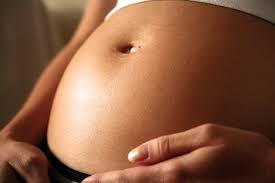
A study has found that baby boys are 10% more likely to be stillborn than are baby girls. This 10% difference means that about 100,000 baby boys are lost each year around the globe.
Researchers at the University of Exeter in England analyzed data from more than 30 million births around the world. The incidence of stillbirth is lower in developed countries than in under-developed countries, but the greater risk for baby boys is seen everywhere in the world except China and India, where sex-selective abortion is a known issue, the researchers reported.
A stillbirth occurs when the fetus dies in the uterus during birth or near the end of a full-term pregnancy. There are many different causes for stillbirth, including birth defects, developmental problems, infections, and problems with the umbilical cord or placenta. The report notes that other possible causes include an increased sensitivity of male fetuses to environmental factors experienced by the mother, including obesity, smoking, advanced maternal age, and social deprivation. However, no cause is ever determined in about one-quarter of stillbirths.
"The numbers speak for themselves -- the disparity between male and female stillbirth rates is startling," said Fiona Matthews, one of the authors of the report. "Uncovering why male babies are at higher risk could be a first step towards developing new approaches to prevention, including sex-specific management of high-risk pregnancies."
There are early warning signs that can determine if a pregnancy may be going badly or that the fetus is not developing as it should. The actual size and growth rate of the baby can be compared to predictions based on the mother's height, weight and ethnicity, and how many other babies she has had. However, these methods usually do not take into account the gender of the baby. Because baby boys are on average larger than baby girls, this information could help identify unusually small male babies who would at higher risk of being stillborn.
Stillbirth rates in high- and low-income countries have declined very little in the past 15 years. The report notes that one in 260 pregnancies in the United Kingdom end in stillbirth. In the United States, the rate is higher, with one in 160 births ending in a stillbirth.
The Exeter study was published in the journal BMC Medicine and was reported on at ScienceDaily.com.



